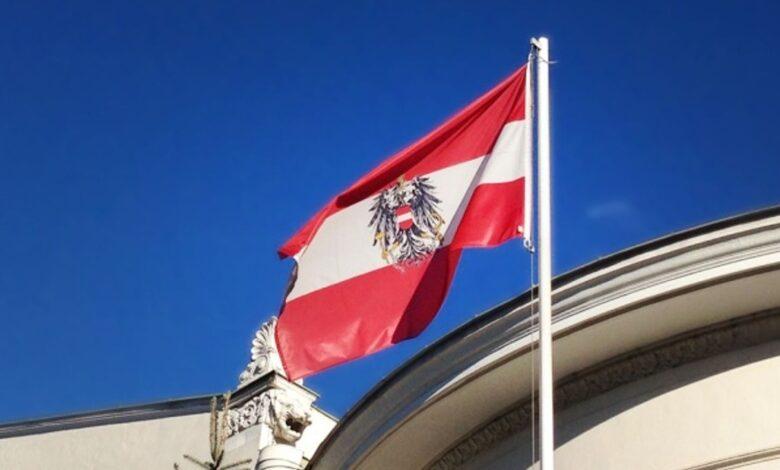Austria changes rules for Ukrainian refugees

The gradual integration of Ukrainian refugees into European social systems is increasingly accompanied by a transition from crisis solutions to long-term models. One of these changes was the reform of health insurance for persons who are in Austria under the status of temporary protection. As of June 2025, the mandatory health insurance, which automatically covered all displaced Ukrainians, will no longer be valid for some categories. From July 12, it will finally stop for those who do not work and do not receive basic social support.
What exactly has changed since the end of May
For information of the Austrian agency APA, as of June 1, 2025, the general model of mandatory health insurance for all Ukrainians under temporary protection is no longer valid in Austria. These are those who do not have a job, do not receive basic social security and are not insured through other government programs. The decision was taken by the government ahead of schedule and went into effect as planned at the end of May.
However, the authorities provided for a six-week transition period. Until July 12 inclusive, Ukrainian refugees retain access to medical services: it is allowed to consult a doctor, receive prescription drugs, and use medical consultations. However, this is a temporary mechanism that will expire in mid-July. After that, access to the health care system will be open only to those who secure their insurance status according to the new requirements.
Who will remain insured after July 12
The Austrian system provides several grounds for insurance coverage:
- Official employment. All citizens of Ukraine who have an employment contract and work legally are automatically included in the social insurance system. This means full access to medical services, as well as pension and accident insurance.
- Receiving basic social security (Grundversorgung). This status belongs to persons who do not have other sources of income and are under state care – they live in municipal dormitories, receive food assistance and minimum cash payments.
As of May 2025, according to APA, there were about 35,000 Ukrainians in Austria who remain in the insurance system due to official work or participation in basic social security. Nothing changes for them — the insurance coverage continues to be in full force.
Who is at risk?
The most vulnerable category in the context of this reform are Ukrainian refugees who do not work, have not applied for social assistance, but have certain savings. This group may include, in particular, women with children, the elderly, people who have temporarily suspended work for personal reasons, as well as those who live in the private sector and finance their own expenses without involving public assistance.
Austrian law states that if a person is able to provide for their basic needs on their own and does not need support, they must take care of their own health insurance. Otherwise, after July 12, she will remain without access to free medicine, including consultations, treatment and pharmacy drugs.
What are the options for maintaining access to medicine
You can stay insured after July 12 in two ways:
- Official employment. In the case of concluding an employment contract with an employer, the employee is automatically covered by all types of social insurance, including medical. No additional actions are required from the person.
- Voluntary insurance (individuelle Versicherung). This is an option for those who are not working but want to maintain access to health care. Such a contract can be concluded directly through the Austrian Health Insurance Fund (ÖGK). Voluntary insurance involves a monthly payment — its amount depends on age, health and income level. The approximate cost of the basic package is around 460 euros per month, but there are discounts or special rates for refugees with low incomes. You can clarify the conditions at the local ÖGK branch at your place of residence.
What is Grundversorgung and how to get it
Basic social security (Grundversorgung) is a government support program for individuals who are unable to independently finance housing, food, medical care and other basic needs. To receive this assistance, Ukrainians must apply to the appropriate authority in the federal land where they live. Usually this is the regional office for refugees or the social department of the magistrate.
The program provides housing (usually a dormitory), food or cash equivalent, basic cash benefits, and automatic health insurance. If a person lives in private housing, but his income does not cover the expenses, he can also apply for Grundversorgung.
What should Ukrainians do now?
By July 12, all Ukrainians who do not work and do not receive social assistance must resolve the issue of health insurance. In the period before the end of the transition phase, it is recommended:
– contact the ÖGK (Österreichische Gesundheitskasse) in your city or community for advice on voluntary insurance;
– assess the possibility of official employment with registration in the social security system;
– in case of a difficult financial situation, apply for Grundversorgung.
It is also important to check in advance with a family doctor or a pharmacy whether a person needs to re-registrate documents after July 12 in order to continue medical care.
The Austrian government’s decision is part of a broader trend of adapting temporary protection to the conditions of a long-term stay. The system moves from emergency coverage for all to individual responsibility based on economic status. For Ukrainian refugees who do not work but have some resources, this means: medical care will no longer be automatic. It must either be earned through work or paid for independently.





